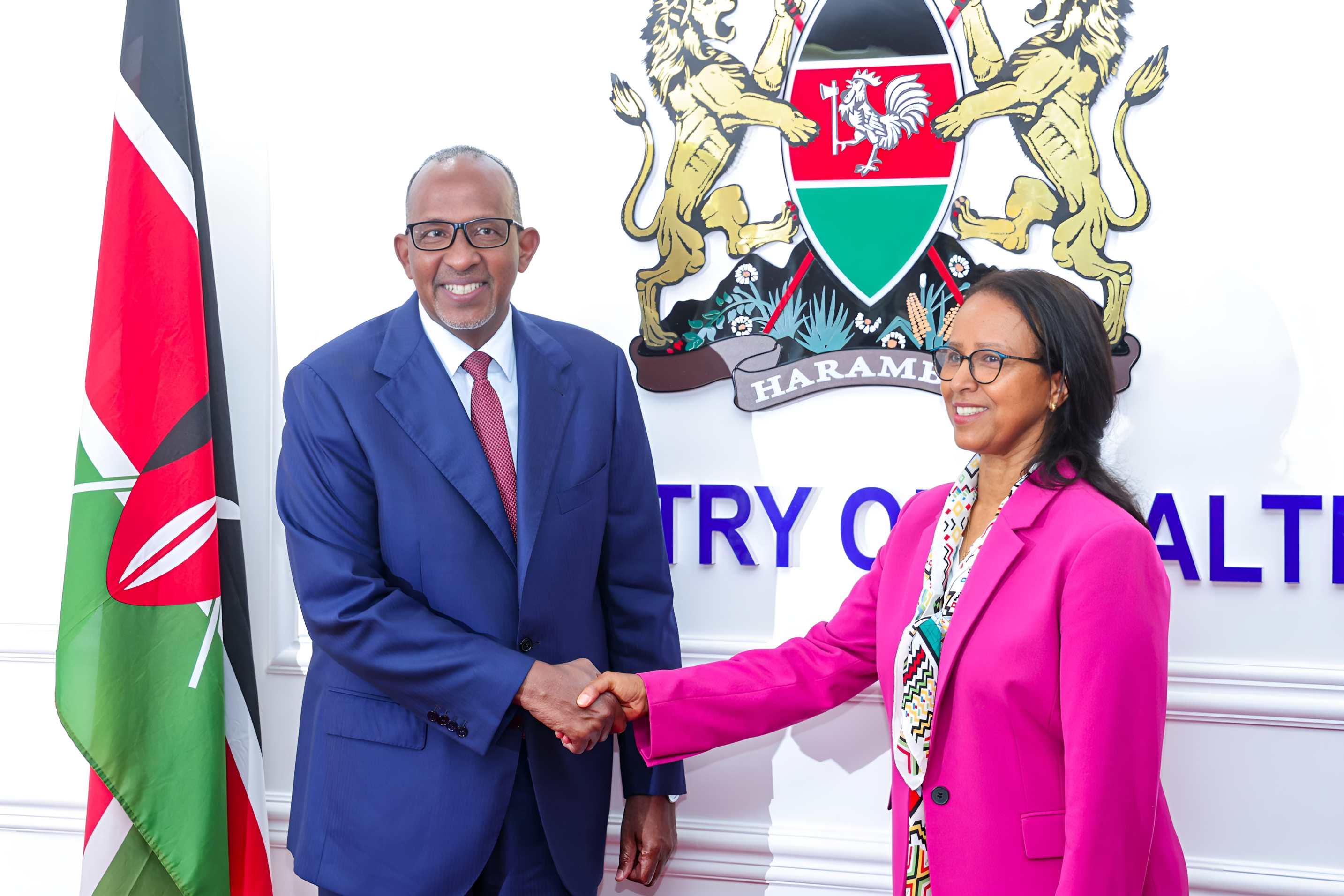Health Ministry partners with UNAIDS to strengthen national HIV sesponse

The partnership focuses on delivering coordinated technical assistance and enhancing the capacity of health and social systems.
Health Cabinet Secretary Aden Duale on Monday, May 12, 2025, held a high-level meeting with officials from UNAIDS to assess ongoing efforts in combating HIV/AIDS across Kenya.
The delegation, headed by UNAIDS Country Director Medhin Tsehaiu, provided updates on the “H6 Partnership” — a joint initiative that brings together six major UN agencies: UNFPA, UNICEF, UN Women, WHO, UNAIDS, and the World Bank Group.
The partnership focuses on delivering coordinated technical assistance and enhancing the capacity of health and social systems to better respond to HIV/AIDS and related challenges.
In a statement, Health Cabinet Secretary Aden Duale recognized the vital and longstanding role UNAIDS has played in supporting Kenya’s HIV/AIDS response and underscored the importance of sustained collaboration moving forward.
He called for joint efforts in rolling out Kenya’s HIV Sustainability and Transition Plan, highlighting key focus areas including a resilient response to HIV beyond 2030, the elimination of mother-to-child transmission, and the advancement of Universal Health Coverage (UHC).
Duale also stressed the need to integrate the Social Health Authority and digital health innovations into the broader UHC strategy, noting that these components are essential to ensuring equitable and efficient healthcare delivery.
He reaffirmed the Ministry of Health’s dedication to upholding transparency and ethical standards in all its operations.
UNAIDS plays a crucial coordinating role among 11 United Nations agencies, providing strategic guidance to national HIV programmes and building partnerships that align with Kenya’s development goals and the broader UN Sustainable Development Cooperation Framework.
Joining the CS during the engagement were Public Health Principal Secretary Mary Muthoni, Director General for Health Dr. Patrick Amoth, and Senior Deputy Director for Health Dr. Sultani Matendechero.
The announcement follows a recent disclosure by the National Syndemic Diseases Control Council (NSDCC), revealing that approximately 16,752 Kenyans have been newly diagnosed with HIV.
According to the NSDCC, more than half—around 51%—of these new infections are concentrated in a handful of counties.
These include Nairobi, Kisumu, Nakuru, Migori, Homa Bay, Uasin Gishu (which hosts Eldoret city), Siaya, Mombasa, Kakamega, Kericho, and Kajiado.
The report highlights a growing emphasis on tracking new HIV infections—referred to as incidence—since these figures offer insight into populations currently at the highest risk.
This data is crucial for directing interventions more strategically.
In contrast, HIV prevalence, which reflects the proportion of Kenyans living with the virus at any given time, remains highest in Kisumu, followed by Homa Bay, Migori, Siaya, Busia, Mombasa, Nairobi, and Uasin Gishu.
Notably, the number of new infections has declined from around 22,000 in 2022 to 16,752—a positive development.
However, this progress is overshadowed by a rise in HIV-related deaths, which climbed from 18,473 in 2022 to 20,480 in 2023, largely driven by increased fatalities among men.
The NSDCC, tasked with coordinating Kenya's multi-sectoral approach to HIV and related diseases, continues to lead efforts in combating the syndemic.
